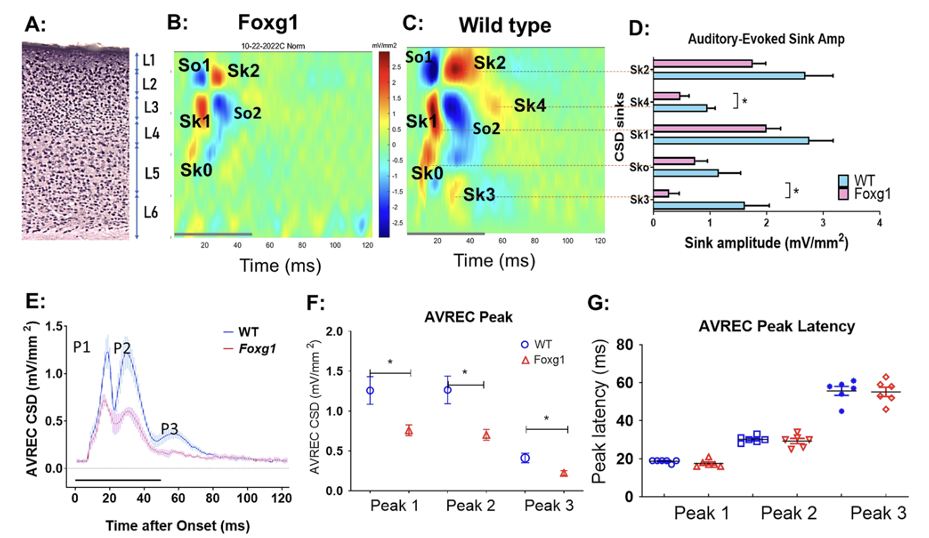Can Hyperacusis Be Treated or Cured?
If you suffer from hyperacusis, or loudness intolerance, treatments are available and scientists are working to improve them and find cures.
Get Updates in Your Inbox
Please subscribe to our monthly digital newsletter to stay up to date on the latest research.
What Exactly Is Hyperacusis?
Hyperacusis is defined as “a reduced tolerance to sound(s) that are perceived as normal to the majority of the population or were perceived as normal to the person before their onset of hyperacusis,” according to the International Journal of Audiology. In some ways, hyperacusis is the opposite of hearing loss. The volume of the world is turned up, not down.
The most common cause of hyperacusis is a noise injury, sometimes called acoustic trauma, from noise overexposure. Hyperacusis can occur suddenly (eg, from an airbag deployment, smoke alarm or fireworks explosion) or gradually (eg, from cumulative exposure from headphones that don’t seem especially loud, or from episodic exposure such as from concerts).
Hyperacusis can also be associated with a number of other conditions, including head injury, ototoxic drugs, viral infections like Bell’s palsy, temporomandibular joint (TMJ) syndrome, post-traumatic stress disorder (PTSD), chronic fatigue syndrome, and other health disorders and neurologic conditions. It often co-occurs with tinnitus (ringing in the ears).
Prevalence figures range from 0.2 percent of the population to more than 17 percent. It can occur either unilaterally (in one ear) or bilaterally (in both ears). Children can also be affected by hyperacusis (and tinnitus), although causes, definitions, and incidence vary widely.
What Does Hyperacusis Feel Like?
There are four known subtypes of hyperacusis, each with a different primary symptom:
Loudness hyperacusis: moderately intense sounds are perceived as too loud
Annoyance hyperacusis: a negative emotional reaction to sounds
Pain hyperacusis (noxacusis): a stabbing sensation (in ear, jaw, or neck) at much lower sound levels than would typically prompt pain
Fear hyperacusis: a negative response to sounds that may cause patients to avoid social situations or feel anxiety in anticipation of hearing these sounds
How Does Hyperacusis Differ From Other Sound Sensitivities?
James Henry, Ph.D., says that among the five sound sensitivities, loudness hyperacusis and pain hyperacusis involve physical hypersensitivity to sound, where average noises that are tolerable for most people become uncomfortably or painfully loud.
Two of the other disorders involve emotional reactions to sound. In misophonia, specific sounds trigger strong emotional responses such as annoyance, irritation, or anger. Similarly, noise sensitivity causes heightened reactions to general noise, leading to tension, anxiety, or frustration.
The fifth condition, phonophobia, is characterized by an excessive and persistent fear that sound will cause discomfort, pain, or emotional distress.
What Treatments Are Available?
The following is for general informational purposes only. Please consult your hearing care provider with specific questions about your auditory health and healthcare.
Currently, there is no standard medical treatment.
Hyperacusis often improves on its own, with time and quiet, over many months or years—but improvement is deceptive and people can easily suffer a setback, with their progress wiped out by just one further noise insult. Avoiding setbacks is important for improvement.
Some mild loudness hyperacusis patients improve from sound therapy, which uses very soft broadband sound to build tolerance.
Many people with pain hyperacusis, on the other hand, have found that this approach often worsens their pain hyperacusis because they need to manage their sound exposure and protect their ears against risky or surprise sounds. (See treatment insights from audiologist Shelley Witt, M.A., CCC-A, of the University of Iowa.)
Testing for Hyperacusis
Few medical professionals are deeply familiar with hyperacusis and may give advice or prescribe tests that ultimately do more harm than good. Patients are often told that ordinary sounds cannot hurt them, for example, but learn through unfortunate experience that the opposite is true for them.
There is also a potential, reported by a number of individuals with pain hyperacusis, that tests like the “loudness discomfort level” (LDL) test, which is sometimes given to measure tolerance, can worsen hyperacusis symptoms. There is similar concern about other noisy tests, like MRIs. It is important to discuss the need for any such tests with your healthcare providers and how to best mitigate harm if you experience any symptoms of hyperacusis.
Hearing protection—the proper use of earplugs and earmuffs whenever people are at risk of a surprise noise or are in a noise environment above their tolerance—is essential not just to manage the discomfort and pain of hyperacusis, but to prevent worsening. Quiet promotes healing.
How Is Hearing Health Foundation Helping?
Hearing Health Foundation (HHF) identifies and funds scientists who work to improve our understanding of hyperacusis, in order to unlock new treatments and eventual cures. For details on projects funded by Hyperacusis Research, HHF's primary partner in funding hyperacusis research since 2015, please click here.
Our funded scientists have observed that a noninvasive, sound-evoked fMRI can be used to identify regions of neural hyperactivity throughout the brain in an animal model of hyperacusis, and have identified pain-related molecules in the auditory pathway as a result of noise exposure.













Often these surprising sources of loud sounds come about from a misguided belief that loud means fun—the louder it is, the more festive. The good news? Because the decibel scale is logarithmic, turning it down even a little can help save our hearing a lot.